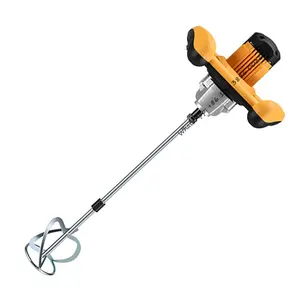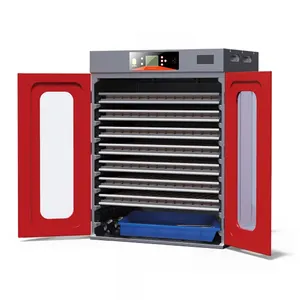Popular in your industry





































































Top categories
About mini abattoir equipment
What is Small-scale Abattoir Machinery
Small-scale abattoir machinery refers to the specialized equipment used in the operation of small-scale abattoirs, which are facilities that process and slaughter a limited number of animals for meat. These pieces of machinery are designed to meet the needs of farmers, small meat processors, and entrepreneurs who are often involved in the food supply chain but operate on a smaller scale than large meat processing plants. Small-scale abattoir machinery encompasses a range of products including slaughter lines, cutting and deboning equipment, meat grinding machines, and packaging machinery that are essential for the processing of livestock such as cattle, sheep, pigs, and poultry.
The operation of a small-scale abattoir involves several stages, beginning with the slaughtering of animals, followed by the processing of the carcasses into various cuts of meat and products such as ground meat, sausages, and steaks. This process requires different types of machinery and equipment for each stage, designed to handle the specific tasks efficiently while ensuring food safety and quality standards. For example, a typical setup might include stunning equipment to immobilize the animals, killing machines to quickly bleed them out, and then processing tools for skinning, deboning, and slicing.
The principles on how small-scale abattoir machinery works are based on various processes. Stunning equipment, such as captive bolt devices or electrical stunners, are used to render the animal unconscious or dead before slaughter. Killing machines are employed to ensure the swift and humane dispatch of the animal. After this stage, processing equipment is utilized to break down the carcass into manageable pieces or to prepare specific cuts of meat according to the needs of the market. The final step in small-scale abattoir operations is often packaging and preservation, which may involve vacuum sealing or freezing to maintain freshness and quality.
Types of Small-Scale Abattoir Machinery
The variety of small-scale abattoir machinery available is extensive, each serving a specific function within the meat processing cycle. Here's a closer look at some of the key types:
-
Killing Machines: These are designed to render an animal unconscious or dead before further processing. Common types include captive bolt stunners, electric stunners, and CO2 stunning machines. They're essential for humane animal handling and meet strict guidelines for ethical treatment of livestock.
-
Slaughtering Equipment: This category includes devices used to slaughter animals and prepare them for commercial sale. Examples are rotary knives, bleeding cones, and specialized hooks meant to efficiently kill or bleed animals.
-
Conveyors: Conveyors transport products along the processing line. They can be simple roller conveyors or sophisticated systems with multiple belts and automated sorting mechanisms. Conveyors are crucial for moving heavy loads and maintaining a smooth production flow.
-
Dehairing Machines: After slaughter, dehairing machines remove hair from the skin of pigs or other animals. This is important both for aesthetic reasons and to prevent contamination of meat products during processing.
-
Cooling Equipment: This machinery is used to cool meat products after cooking or smoking. It can include blast coolers, spiral coolers, or cool rooms that provide a controlled environment for reducing product temperatures quickly.
-
Grinding and Slicing Equipment: For products like ground meat or sliced meat, specialized grinders and slicers do the job quickly and efficiently while ensuring consistent product sizing.
-
Packaging Machinery: Packaging is designed to protect the integrity of the product while also ensuring convenience for consumers. Small-scale packaging equipment includes vacuum sealers and manual or semi-automatic bottling machines.
How to choose Small-scale Abattoir Machinery
Choosing small-scale abattoir machinery requires careful consideration of several factors to ensure that the equipment meets the specific needs of the business. Here are some considerations for selecting suitable machinery:
-
Capacity: Assess the volume of animals you plan to process. Small-scale equipment is designed for low-volume production, so it's crucial to choose machinery that can handle the quantity of work without overburdening your operation.
-
Space Constraints: Consider the amount of space available for setting up the equipment. Some compact models are designed specifically for tight spaces. Ensure that there is adequate room for installation and operation without hindering other processes.
-
Hygiene Standards: The equipment should comply with local health and safety regulations. It should be made of easy-to-clean materials with minimal areas where bacteria can hide.
-
Energy Efficiency: Since small-scale operations often have limited resources, opt for energy-efficient models that can help reduce operational costs over time.
-
After-Sales Service: Ensure that suppliers provide adequate after-sales support such as online technical assistance or video support to help with any operational issues you may encounter.
By taking into account these factors while browsing through Alibaba.com's extensive range of small-scale abattoir machinery options, businesses can make informed decisions that align with their operational requirements and budgetary considerations.
About Small-scale Abattoir Machinery on Alibaba.com
Alibaba.com stands out as a premier online marketplace that connects businesses with a comprehensive selection of small-scale abattoir machinery from reputable suppliers around the globe. This platform offers an extensive range of equipment suitable for various stages of meat processing, accommodating businesses from local service providers to large manufacturing plants. With options tailored for multiple applications such as commercial kitchens, food shops, hotels, and more, Alibaba.com simplifies the procurement process by providing access to a multitude of products under one digital roof.
The site's user-friendly interface allows buyers to filter through a vast array of machinery by local service location, key selling points, core components, and even specific applications—ensuring they find products that meet their precise requirements. Furthermore, Alibaba.com's Trade Assurance service offers an added layer of security by safeguarding payments until buyers confirm satisfactory delivery of their orders.
For businesses looking to equip their operations with reliable and efficient small-scale abattoir machinery, Alibaba.com offers a trusted platform where quality meets convenience. It facilitates global trade by supporting communication in local languages and providing mobile-friendly buying options. By leveraging Alibaba.com's extensive network of suppliers and comprehensive product listings, businesses can confidently invest in equipment that will help them optimize their meat processing capabilities while meeting their commercial objectives.
Common FAQs for Small-scale Abattoir Machinery
What is the primary use of a small-scale abattoir machinery?
Small-scale abattoir machinery is designed for processing livestock into meat and meat products, including cutting, deboning, and packaging various meats such as beef, pork, and poultry.
How do I determine the appropriate capacity for a small-scale abattoir?
Consider the volume of livestock in your area and the demand for processed meat. A larger operation is beneficial for meeting wholesale or export needs, while smaller operations are more suited for boutique producers or retail markets with specific niche markets.
What factors should be considered when choosing machinery for a small-scale abattoir?
Key factors include the volume of livestock to be processed, the range of products you want to produce, the material of the machinery for hygiene and durability, safety features for compliance with industry standards, and after-sales support and service availability.
Can small-scale abattoir machinery process different types of meat?
Yes, many small-scale abattoir machines are designed to handle a variety of meats, but it's important to check the specifications of each machine to ensure it can process the specific types of meat you intend to work with.
Are there any specific maintenance requirements for small-scale abattoir machinery?
Regular cleaning, lubrication, and inspections are necessary to ensure the longevity and proper function of small-scale abattoir machinery. Follow manufacturer guidelines for specific maintenance protocols.
Is it possible to find environmentally friendly small-scale abattoir machinery?
While environmental impact depends on various factors such as energy source and waste management, there are options for small-scale abattoir machinery that prioritize sustainability and waste reduction.
What kind of after-sales service can I expect for small-scale abattoir machinery?
After-sales services vary by supplier but may include online support, video technical support, and engineers available to service machinery overseas. Always check what kind of support is offered before making a purchase.
How does voltage affect the operation of small-scale abattoir machinery?
Ensure that the voltage requirements of the machinery match the local electrical standards where the equipment will be operated. Some machinery may come in multiple voltage options to suit different regions.
What materials are commonly used in the construction of small-scale abattoir machinery?
Stainless steel is a common material due to its durability and ease of cleaning. Carbon steel may also be used in some components but is less common due to its lower resistance to corrosion.
Can I find multifunctional machines that perform more than one task?
Yes, multifunctional machines are available that can perform various tasks such as cutting, deboning, and packaging within a single system. These are particularly useful for operations with limited space or specialized processing needs.
How do I ensure that the small-scale abattoir machinery meets hygiene standards?
Look for machinery that is designed with smooth surfaces and easy-to-clean materials. Suppliers may provide machinery test reports or certifications that indicate compliance with hygiene standards.




























